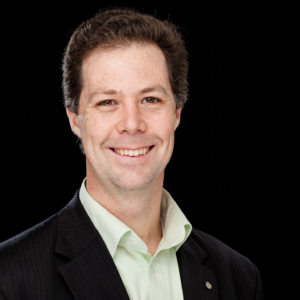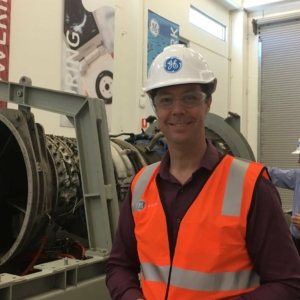Stories of our Scholars – Dr Eric May
Professor Eric May received a MRIWA Supplementary PhD Scholarship in 2000. Following the completion of his PhD, Eric has continued on to a stellar research career in the Australian oil…

Professor Eric May received a MRIWA Supplementary PhD Scholarship in 2000.
Following the completion of his PhD, Eric has continued on to a stellar research career in the Australian oil and gas engineering sector.
Awarded the prestigious Malcolm McIntosh prize for Australian Physical Scientist of Year in 2012, Eric is today the Chevron Chair in Gas Process Engineering at the University of Western Australia and the CEO of the Future Energy Exports CRC.
Professor May’s successes are a testament to his hard work and innovative brilliance, but he acknowledges that the MRIWA scholarship helped to kickstart his career by providing valuable support at a critical time during his studies.
The MRIWA scholarship allowed me to accelerate my PhD research
How did the financial support provided by the MRIWA scholarship support your PhD studies?
The MRIWA scholarship allowed me to accelerate my PhD research, which led to the award of a patent for new sensor technology to monitor hydrocarbon dew points.
It also allowed me to spend six months as a visiting graduate student at Washington State University, where I broadened my understanding of Chemical Engineering and developed an interest in the challenges associated with Liquefied Natural Gas.
Did your PhD research lead to any significant findings which have informed your later experiences in the industry?
Yes – the patented sensor technology I developed changed the way we monitor hydrocarbon behaviour in laboratory studies, and has since been adapted to develop a new sensor for detecting freeze-out in LNG plants that we lodged a new patent for in 2019.
The experience of patenting sensor technology during my PhD also introduced me to the process of IP commercialisation, which has been very helpful in establishing a spin out company to realise the practical potential of my research—Gas Capture Technologies—which is now operating in China.
 As a successful senior scientist now, how do you view the role of PhD students in your own research at UWA and the broader work of the Future Energy Exports CRC?
As a successful senior scientist now, how do you view the role of PhD students in your own research at UWA and the broader work of the Future Energy Exports CRC?
PhD training can be very beneficial for the careers of future industry leaders. Beyond the technical skills acquired in this sort of education, a PhD also delivers a unique experience in innovation and the generation of new knowledge that can deliver value to all parts of the engineering industry.
In 2016 we established the Australian Centre for LNG Futures by building on collaborations with industry partners to identify priority projects that would be suitable for PhD research. This Centre was supported by the Australian Research Council and has been very successful, leading to the establishment of the Future Energy Exports CRC.
Beyond the research experience they gain through a PhD, we also work to enhance the capacity of our students to contribute to real-world solutions and develop substantial careers by arranging industrial placements for them. Closing the loop, we also deliver training workshops for our industry partners to help highlight the value of research.
What are the best things about your research career at UWA and working with industry?
For me, delivering new technologies that can solve real problems in industry is a powerful motivation.
Seeing some of these actually deployed and changing the way the industry operates is even more rewarding. What really inspires me though is the opportunity to see young people at the start of their careers grow in capability and confidence.
Many of the students I have worked with and supported in their studies have gone on to establish themselves as technical and business leaders, and it is deeply rewarding to feel that I have played a small part in their journey.
Further details of the MRIWA PhD scholarship program are available at scholarships
Page was last reviewed 4 July 2022
